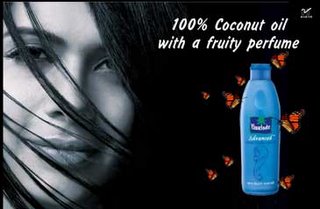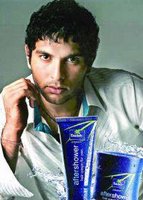We are living in an era where brands are becoming commodities and commodities increasingly being branded. Commodity can be broadly defined as those products which are undifferentiated and consumers buy these products on the basis of the price. Price is the most critical factor that determines the choice of purchase of commodities.
Many product categories are becoming commoditized owing to the huge number of products that enter the market and the inability of marketers to find meaningful differentiation. Consumers do not see much difference between the products/brands and make their choice based on price. Marketers worried about this trend increasingly concentrate on cutting costs and selling products at the lowest possible price and thus effectively making the product a commodity. While marketers should prevent products becoming commodities, increasingly companies are looking towards branding product categories which was usually considered as commodities.
Indian market has witnessed lot of success stories of marketers successfully branding commodities like salt, atta etc.
Moving away from Price
One of the major challenges for marketers trying to brand commodities is to move away from price based competition. It is not easy to convince the customers to make choices independent of price while buying a commodity. The task for the marketers is to show more value that will justify the premium paid.
Tata Salt was a pioneer in branding salt. Tata had the backing of a strong brand name. Besides taking advantage of the strong brand equity, Tata Salt was one of the first iodised salt brands and the iodine content proved to be a great value addition. The launch of Tata Salt coincided with the Government of India’s initiative to promote iodised salt. Tata Salt positioned itself on the basis of purity and trust. Another player in the branded salt market Captain Cook tried to add value by promoting its Free Flow feature. The strong promotional campaigns and the very relevant value additions shifted the focus of consumers away from the price.
Differentiation
The most important determinant of a successful commodity branding is the differentiation. The marketer has to establish a very strong meaningful and relevant differentiation to the commodity if he wants to develop a brand in that space. Creating a successful differentiation is not easy in commodity marketing. There is a strong constraint of cost while searching for a meaningful differentiation. The brand will be targeting a price sensitive customer who may not be willing to pay a high price for a differentiated commodity.
Most of the marketers try to use Quality as the key differentiator. Quality is a strong differentiator but the brand has to establish a significant difference between the existing product and the brand to convince the customer about the quality. Parry’s sugar is India’s first branded sugar. The brand is trying to differentiate on the basis of purity and is positioned as a refined pure sugar.
Branding
The brands in the commodity space may have to grab a major share of voice for establishing itself in the category. The brands which have been successful in the commodity space have invested heavily in branding and promotion. Once the brand is established, the promotional spends can be rationalized.
While branding commodities, marketers have to use the various brand elements to the maximum. The colour, brand name, logo, mascots have significant impact on the consumer’s perception about the brand.
Packaging also plays a significant role in successful commodity branding. Brands like Pillsbury, Aashirvaad have caught the consumer’s attention through careful packaging. Parachute which has created a brand in the coconut oil category has put in lot of investment in packaging and brand promotion.
Celebrities also play an important role in building a brand in the commodity space. The use of celebrities creates an immediate impact on the consumers during the initial phase of branding. The disadvantage is that the use of celebrities can push up the cost for the marketers. BPCL used Narain Karthikeyan and MS Dhoni to endorse its Speed range of Premium petrol.
Brands should be innovative while entering the commodity space. Nightingale is a highly successful brand in the highly fragmented Notebook/Diary category.The brand was built on innovation. Nightingale introduced theme based notebooks and Diaries which became an instant hit. Parryware changed the entire sanitary industry with the concept of Glamourooms.


